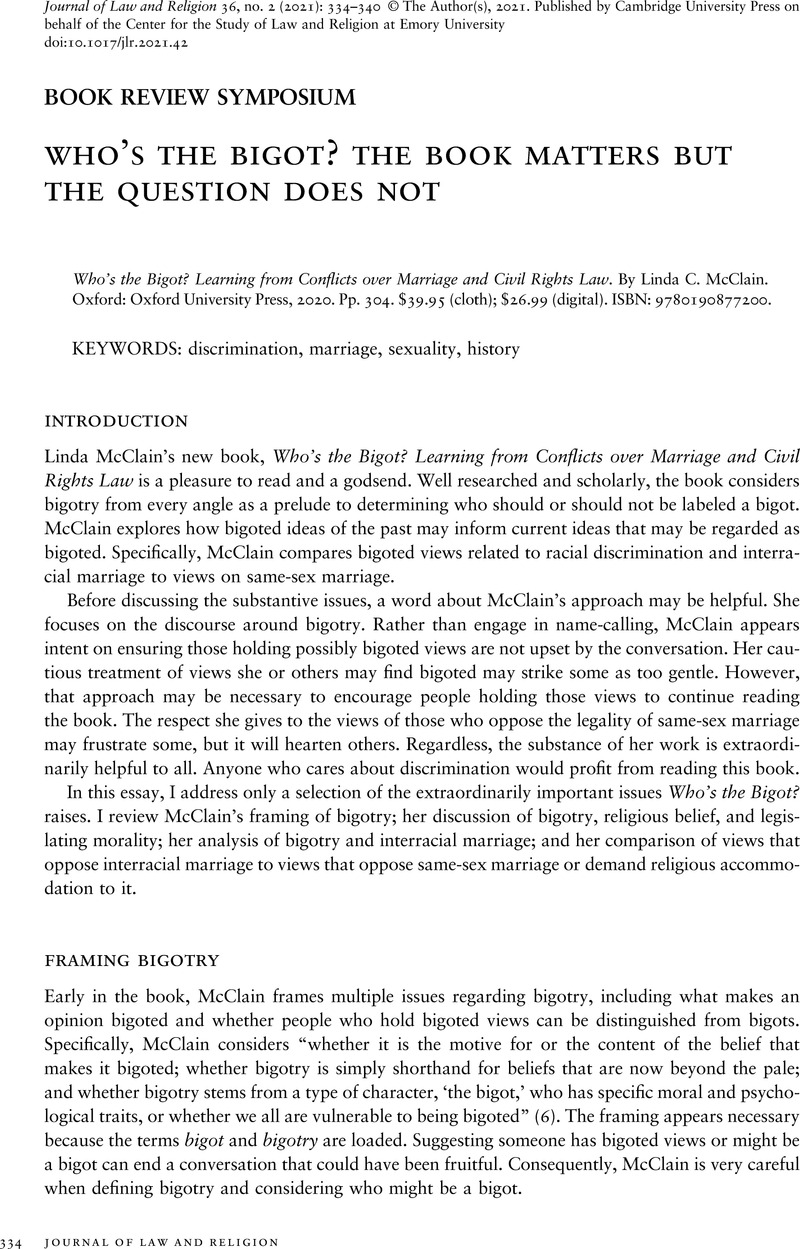No CrossRef data available.
Published online by Cambridge University Press: 24 August 2021

1 Civil Rights Act of 1964, Pub. L. 88-352, 78 Stat. 241.
2 For McClain's general discussion of intermarriage, see chapter 3.
3 Gross, Ariela and de la Fuente, Alejandro, “Slaves, Free Blacks, and Race in the Legal Regimes of Cuba, Louisiana, and Virginia: A Comparison,” North Carolina Law Review 91, no. 5 (2013): 1699–756Google Scholar, at 1720.
4 For a discussion of whether their marriage would have been legal in pre-Loving Virginia, see Maillard, Kevin Noble, “The Pocahontas Exception: The Exemption of American Indian Ancestry from Racial Purity Law,” Michigan Journal of Race and Law 12, no. 2 (2007): 351–86Google Scholar.
5 See Maillard, “The Pocahontas Exception,” 354 (“In its accommodation of one-sixteenth Indian blood, Virginia law venerated the ‘Pocahontas Exception.’ Acknowledging the interracial marriage of Pocahontas, the famous ‘Indian Princess’ and the Englishman John Rolfe, the Pocahontas Exception ensured that their descendants could be legally White.”).
6 This is not meant to suggest Hemings desired the relationship or that it was strictly consensual.
7 For a detailed history of these relationships, see Gordon-Reed, Annette, The Hemingses of Monticello: An American Family (New York: Norton, 2008)Google Scholar.
8 Many states repealed bans on interracial marriage before Loving. See Loving v. Virginia, 388 U.S. 1, 6 n. 5 (1967) (“Over the past 15 years, 14 States have repealed laws outlawing interracial marriages: Arizona, California, Colorado, Idaho, Indiana, Maryland, Montana, Nebraska, Nevada, North Dakota, Oregon, South Dakota, Utah, and Wyoming. The first state court to recognize that miscegenation statutes violate the Equal Protection Clause was the Supreme Court of California. Perez v. Sharp, 32 Cal.2d 711, 198 P.2d 17 (1948).”).